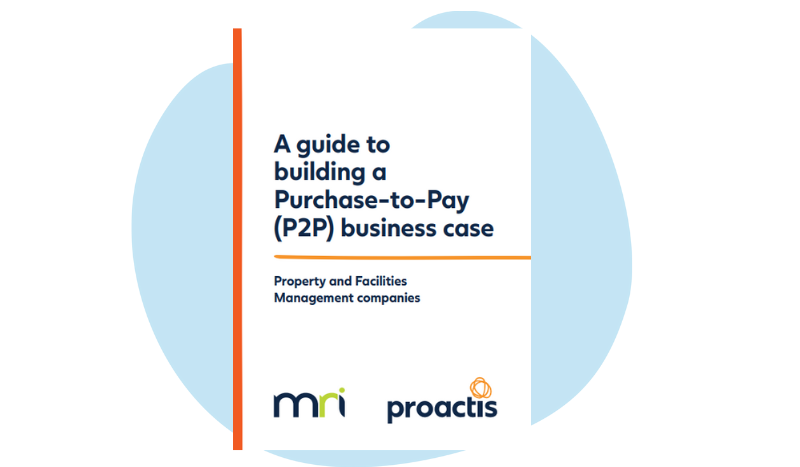7 Benefits of a CRM in Real Estate
There are so many benefits of utilising a CRM solution in real estate, that it’s no wonder that more and more estate agencies are investing in such software. CRM (customer relationship management) is a system that takes care of several aspects of your agency’s everyday workflow and organisational tasks, freeing up time for your team to focus more on what you do best – interacting directly with your clients. Real estate CRM software does everything from nurturing new leads to automating your marketing, and so much more.
Property Management Software
Multi-discipline technology for property owners, investors and occupiers.
Get a demo
At MRI Software, we have developed market-leading CRM solutions that align with the future of PropTech and completely transforms the way your agency conducts business. With a CRM at your disposal, your business practices, workflows, real estate analytics and organisational capabilities will become far more manageable.
Let’s take a look at 7 benefits of CRM in real estate and how they can make a big difference to the workflow of your agency.
Foster effective lead management
One of the main benefits of CRM in real estate is that it allows your agency to centralise all its lead data in one place. This guarantees that no lead data ever gets lost or forgotten thus increasing the likelihood of your team following up on those opportunities. The software will capture leads from a variety of sources and group them all together.
Real estate CRMs can manage your leads from different sources including:
- Your website
- Social media
- Email campaigns
- In-person leads
- And more
CRM systems also include task management features that allow you to assign and track tasks related to lead nurturing. This way, you and your team will always stay abreast of following-up with leads and making appointments that could result in new clients for your agency.
Increases the speed of closing deals
Another benefit of CRM in real estate is that it can help you organise and segment your leads, prioritising the opportunities that promise the most rewards. A CRM for estate agencies also provides task management features that allow you to assign and track activities related to closing deals. This ensures that you and your team stay on top of critical tasks such as property showings, contract preparation and negotiation deadlines. By effectively managing these activities, you can expedite the closing process.
A CRM system provides communication tools that facilitate quick and efficient communication with leads, clients and other stakeholders involved in the deal. Features like email templates, SMS integration and chatbots enable you to respond promptly to enquiries, provide necessary information and address any concerns in a timely manner. Clear and consistent communication can significantly reduce the time it takes to close a deal.
Maintains data accuracy
The next benefit of CRMs in real estate is that they can enforce data validation rules, ensuring that only accurate and complete information is entered into the system. This helps maintain data integrity by preventing incorrect or incomplete data from being stored. Additionally, CRM systems often provide standardisation features that allow you to define and enforce consistent data formats, such as phone numbers, addresses and property details.
A further benefit of CRM in real estate is that it can automate data entry processes by integrating with various lead sources, websites and other systems. This minimises manual data entry and reduces the chances of human error. Leads and other relevant data can be automatically captured and populated within the CRM, ensuring accuracy while saving time.
A CRM system can help identify and clean up duplicate or redundant data. It can automatically flag or merge duplicate records, preventing confusion and inconsistencies caused by having multiple entries for the same contact or property. Regular data cleansing and deduplication processes help maintain accurate and reliable data within the CRM.
Improves lead follow-ups
Once your CRM has captured all of these leads, it will automatically begin the nurturing process. You can set up automated email or SMS sequences that are triggered based on predefined conditions or time intervals. This ensures that leads are nurtured and engaged without delays, increasing the chances of conversion.
A CRM allows you to track and manage leads efficiently. You can set reminders and notifications for follow-up tasks, appointments or important milestones in the lead journey. This helps you stay organised and ensures that no follow-up opportunities are missed.
Additionally, a CRM provides tools to personalise your communication with leads. You can store relevant information about each lead, such as their preferences, property requirements or previous interactions. With this data at hand, you can tailor your follow-up messages to address their specific needs and interests, increasing the chances of engagement and conversion.
Helps with drip campaign management
A real estate CRM allows you to create and automate drip campaigns, which are a series of pre-planned, automated messages sent to leads over time. You can set up the timing and content of each message, and the CRM will automatically send them according to the defined schedule. This eliminates the need for manual follow-ups and ensures consistent communication with leads.
It also provides a platform to manage your drip campaign content. You can create and store email templates, landing page templates or other collateral within the CRM. This centralisation ensures consistency in your messaging and makes it easy to update or modify content when necessary.
Standardises workflows
CRM designed for estate agencies allows you to automate repetitive tasks and workflows. You can define and set up automated processes based on specific triggers or conditions. For example, you can automate lead assignment, follow-up reminders or task creation based on certain lead actions or timeframes. Automation ensures that workflows are consistently followed and reduces the chances of manual errors or oversights.
This software also provides task management features that allow you to create and assign tasks to team members. You can define standard task templates for different stages of the real estate process, such as property showings, contract preparation or closing activities. By standardising tasks and assigning them to the appropriate individuals, you ensure that each step in the workflow is clearly defined and consistently executed.
Ability to track the entire workflow
The final item in our list of benefits of CRM in real estate is how it organises your workflow into a visual deal pipeline, which represents the different stages of a real estate transaction, such as lead generation, lead qualification, property showing, offer negotiation, contract preparation and closing. Each deal is tracked and moved through these stages, allowing you to easily see the progress of every transaction and identify bottlenecks or delays.
Within the CRM, you can create and track specific activities and tasks associated with each deal or workflow stage. These tasks can be assigned to individuals or teams, and their status, due dates and completion can be monitored. This enables you to have a clear view of the activities that need to be completed at each stage and ensures that nothing falls through the cracks.
Real Estate CRM at MRI Software
To find out how our powerful and innovative estate agency software is already helping 3,500+ users across 400 offices, please get in touch, we would love to help.
A guide to building a Purchase-to-Pay business case
Spend Management is a journey, and for many organisations, one of the first, most important legs of the trip is deployment of a Purchase-to-Pay (P2P) solution. In recent times, property and facilities management companies and their Finance department…
